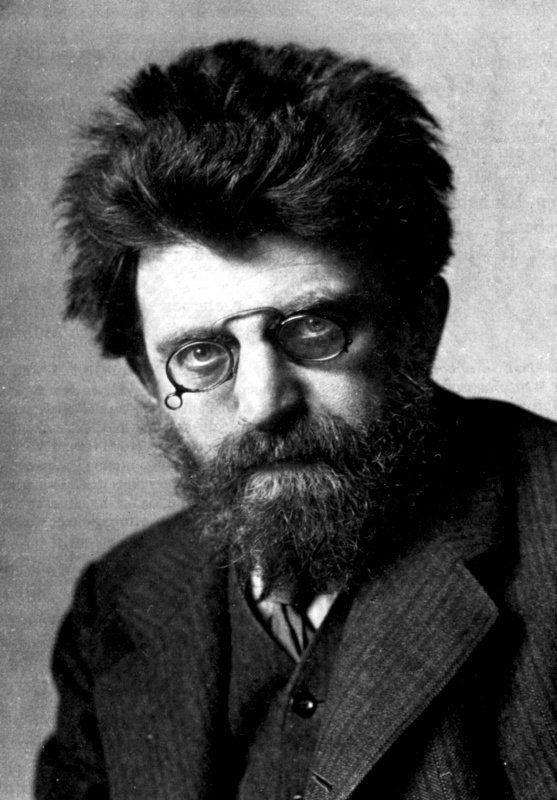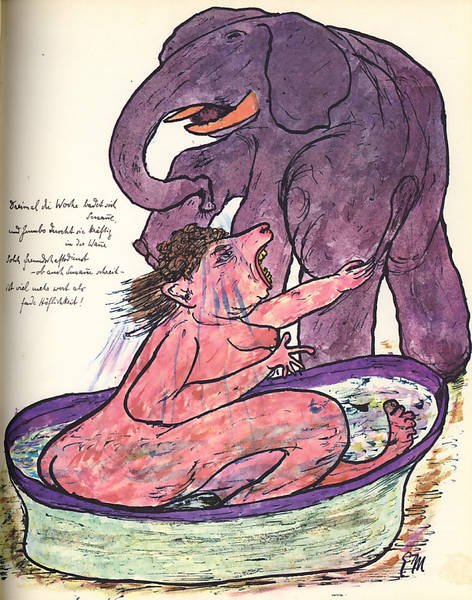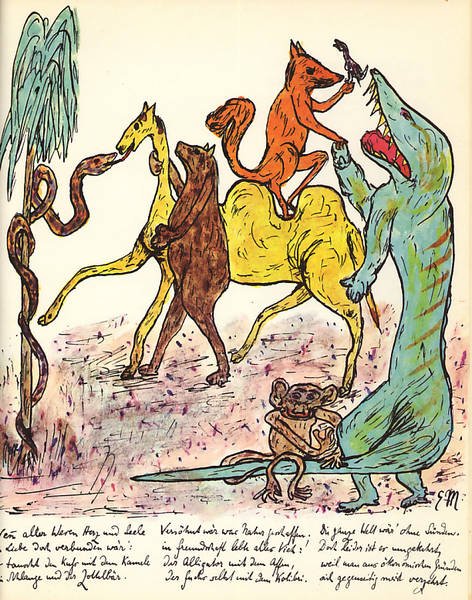Three days ago I read a poem of Erich Mühsam to a new friend when the idea came to me to make a postseries about authors whose works were burned by the Nazis. As a first small introduction to his works I translated his poem for it was not available in English online:
I am a pilgrim...
I am a pilgrim, who does not know his destination;
Who sees fire and does not know where it is burning;
In front of whom the world runs into strange suns.
I am a dreamer, who is fooled by a blaze;
who scrabbles for gold in a sunbeam;
who flees the awakening he awaits.
I am a star, who illuminates his god;
who puts his splendour in dark souls;
who one falls into pale eternities.
I am a water, that flows to never join,
that streamed out of dew to spill in clouds,
that kisses, sweeps away, crys and enjoyes happily.
Where is the one, who names my being?
Who separates my world from my longing?
I am a pilgrim, who does not know his destination.

Erich Mühsam represented the idea of nonviolent anarchism and characterized anarchists as follows:
"An anarchist never enters into voluntary commitments that can affect self-determination or subordinate him to authority."
The way he lived shows how consistently he followed his credo, formulated in 1918: "And if they slay me, to obey is to lie!" Mühsam tried repeatedly to unite all left-wing parties in solidarity against the war and with these pacifist efforts he was a thorn in the eye of the imperial empire. That is why he was arrested in 1919 and released early after six years' imprisonment. During his imprisonment he wrote stories for his wife Kreszentia and illustrated them with colorful drawings.

When, after his release, he and his wife arrived at the Anhalter Bahnhof in Berlin, thousands of comrads were waiting for him singing the Internationale, for which they were attacked by the police. In 1929, the Jewish-born Mühsam warned the SPD and the KPD that the fascists were planing a coup.
In the night of the burning of the Reichstag, 27th to 28th February 1933, Mühsam was arrested by SA men and taken to jail. His plan to escape the next morning to Prague did not work out. He was held in various prisons and concentration camps and repeatedly abused.

A fellow detainee described Mühsams condition in those days as follows: "The face was red and completely swollen, his eyes were bloodshot, he fell powerlessly on his straw bag, "The pigs," he said, "pounded in my mouth." The next day, his left ear was swollen like a boxer's ear, and a bubble came out of the auditory canal, and he was left in this condition without help for eight days. Erich Muhsam said to me, "You know, I'm not afraid of dying, But this slow murdering is the horror." In 1934 he was assassinated by SS-Men in Oranienburg concentration camp. His fighting spirit and inspiring poetry remains in our hearts.
If you would like to read this post in German click here.
